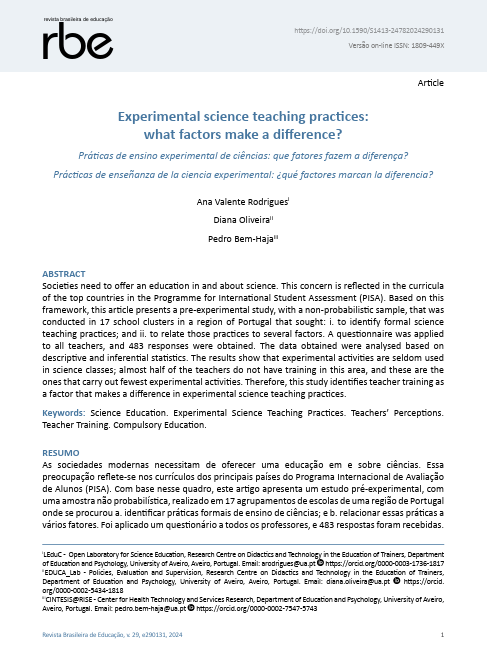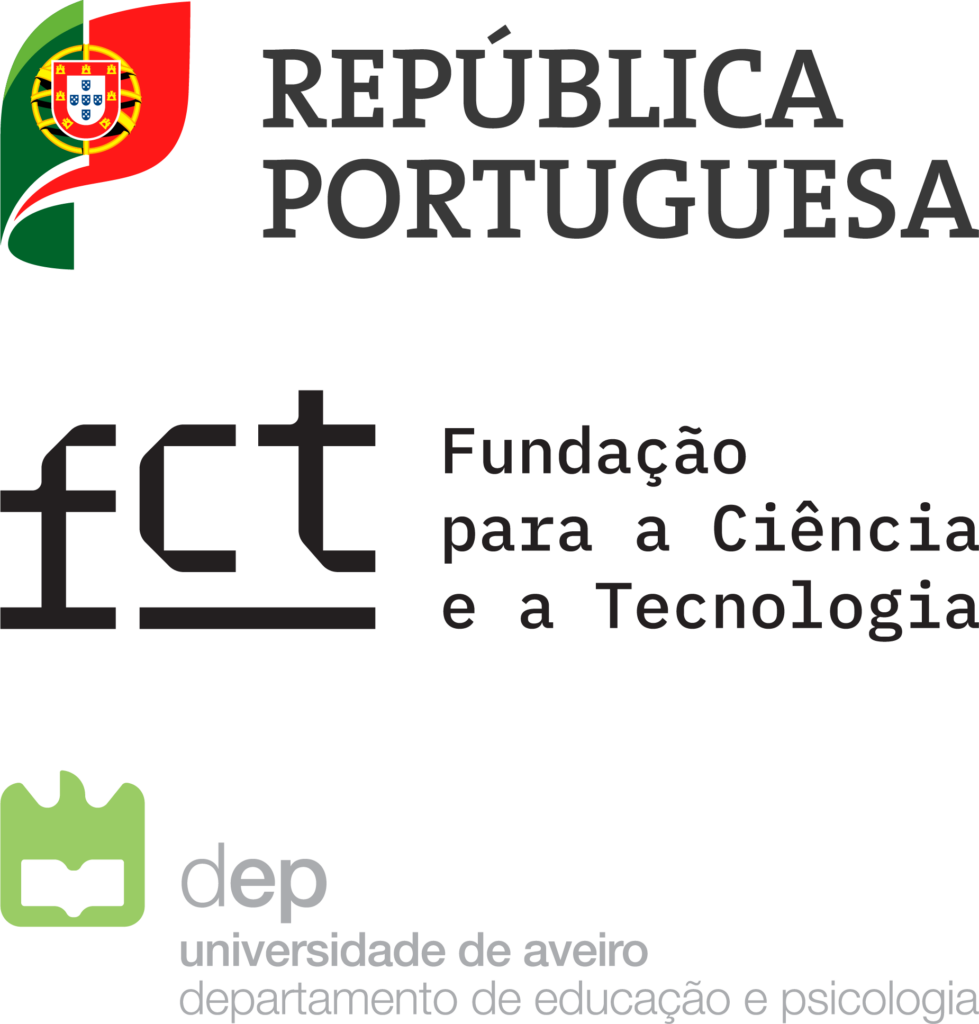Ana V. Rodrigues (CIDTFF), Diana Oliveira (CIDTFF) & Pedro Bem-Haja | Revista Brasileira de Educação, Vol. 29, e290131
Abstract: Societies need to offer an education in and about science. This concern is reflected in the curricula of the top countries in the Programme for International Student Assessment (PISA). Based on this framework, this article presents a pre-experimental study, with a non-probabilistic sample, that was conducted in 17 school clusters in a region of Portugal that sought: i. to identify formal science teaching practices; and ii. to relate those practices to several factors. A questionnaire was applied to all teachers, and 483 responses were obtained. The data obtained were analysed based on descriptive and inferential statistics. The results show that experimental activities are seldom used in science classes; almost half of the teachers do not have training in this area, and these are the ones that carry out fewest experimental activities. Therefore, this study identifies teacher training as a factor that makes a difference in experimental science teaching practices.
Keywords: Science Education, Experimental Science Teaching Practices, Teachers’ Perceptions, Teacher Training, Compulsory Education
_ _ _ _ _ _ _
Referência:
Rodrigues, A. V., Oliveira, D., Bem-Haja, P. (2024). Experimental science teaching practices: what factors make a difference? Revista Brasileira de Educação, 29, e290131. https://doi.org/10.1590/S1413-24782024290131





